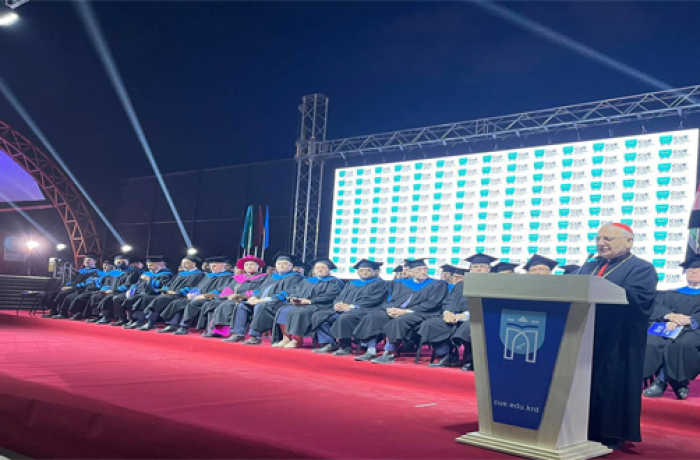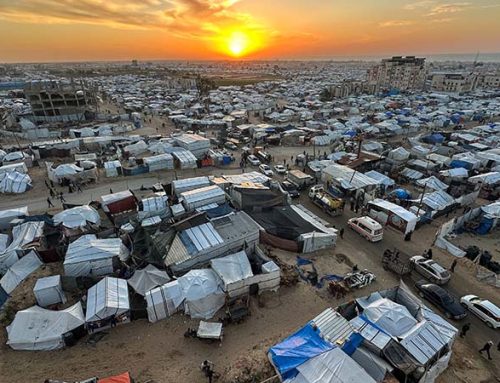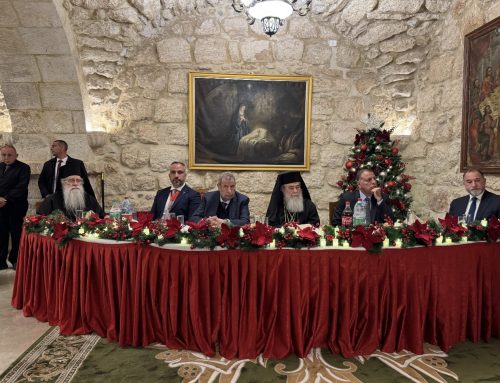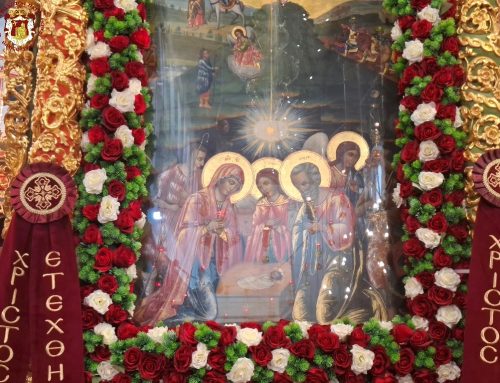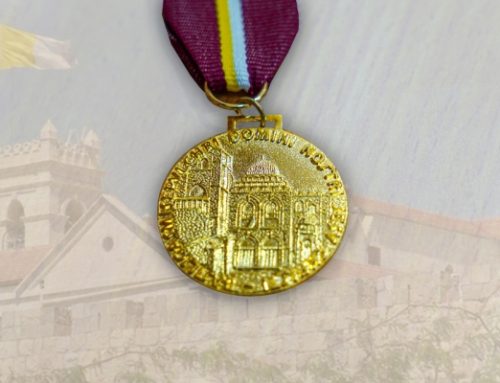The university, strongly desired by Archbishop Msgr. Warda, was inaugurated at the end of 2015 under the threat of Isis. A screening of interviews with young students as the recount their dreams and aspirations. Chaldean Primate: University “wonderful forum for culture, education, dialogue”.
Erbil (AsiaNews) – “This university is a wonderful forum for culture, education and dialogue and for this reason it must be supported,” insisted the Chaldean Patriarch, Card. Louis Raphael Sako, during the solemn graduation ceremony of the first group of young people to have completed their studies at the Catholic University of Erbil, in Iraqi Kurdistan.
The university first opened its doors at the end of 2015, when much of Iraq was under threat from the Islamic State (IS, formerly Isis). The extremists had chosen Mosul as their stronghold a few dozen kilometers from the border with the autonomous region.
“On my own behalf and on behalf of the Chaldean Church,” the primate continued, “I wish to express my warmest congratulations to the diocese of Erbil, its archbishop, the city of Ankawa, the university faculty staff and the first group of graduates.
The solemn ceremony (see photo), enriched by musical entertainment, was held yesterday in the gardens of the university, in Ankawa. The event was attended by numerous religious and civil personalities, intellectuals, politicians, the Patriarch of the Assyrian Church of the East Mar Awa III, the Apostolic Nuncio in Iraq, bishops, nuns, priests and relatives of the students. The son of the president of the Kurdish autonomous region Idris Barzani, some ministers and academics, as well as the founder of the university Monsignor Bashar Warda also spoke during the evening.
Those present were able to hear, thanks to two films made earlier and broadcast during the ceremony, the testimonies of some university students, their dreams and aspirations in a reality that has not always favored their course of study.
“The Catholic Church – continued Card. Sako – has distinguished itself since the first centuries of its founding for its cultural and social institutions: schools, universities, charities for the poor, hospitals and charitable clinics.”
The Catholic university as well as the Maryamana Hospital, also in Erbil, are “vital projects” that strengthen the role and presence of the Church itself in society. In recent days there has been the opening of a center for autism in Kirkuk and the laying of the foundation stone of the Thalassima Center and a facility for Alzheimer’s patients almost completed in Sulaymaniyah. These social, cultural, educational and health initiatives “prepare a future of coexistence” in the country, notes the cardinal, and offer opportunities for knowledge, exchange of experiences, allow to prepare for future challenges.
Speaking of schools, the Chaldean primate hopes that “religious education” is offered to all students and that it is not only Christian or Muslim, but embraces the different faiths so that students “can know the points in common and avoid extremism.”
Today, he continued, there are two “tendencies” among the faithful of religions: the first is an intransigent and radical vision, which does not admit revisions with respect to an immutable past. The second reads religions “in depth” and searches for their “essence”, or message, without losing their “vitality and momentum”, especially in this “digital” age.
Because religion “has an important role” in public affairs and “cannot be limited to rituals and worship.” The task of religions “is to serve people” while preserving their freedom and dignity, the cardinal concluded, and as Pope Francis emphasizes, “human fraternity and faith in God, the center of all religions, must unite us” while respecting “diversity and pluralism.”
Source: Asia News

